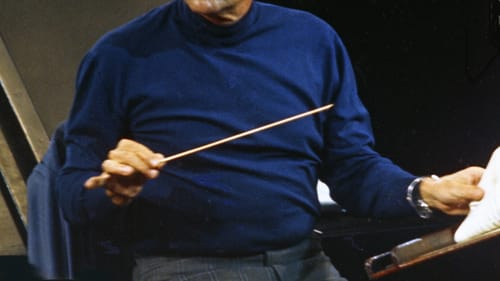Stay in the Loop
BSR publishes on a weekly schedule, with an email newsletter every Wednesday and Thursday morning. There’s no paywall, and subscribing is always free.
Fear, anxiety, and depression
Philadelphia Orchestra presents Leonard Bernstein's 'Age of Anxiety'

Leonard Bernstein’s Symphony No. 2 for Piano and Orchestra — best known by its subtitle, The Age of Anxiety — makes perfect programming for the Philadelphia Orchestra on St. Patrick’s Day weekend. Bernstein based his 1948 composition on a book-length poem by W.H. Auden that follows four drunken revelers trying to make sense of their increasingly empty lives.
The maestro’s music can seem similarly besotted across the 40-minute work. But, Bernstein being one of the most unapologetically intellectual composers of the 20th century, the listener shouldn’t expect his work merely to portray drunkenness with a sense of accuracy. He digs into the haunting and paranoid echoes that infuse Auden’s work, and the symphony earns its title.
Piano as individual
In Auden’s poem, alcohol allows the characters to tap into their unconscious minds and properly explore the meaning of existence. Yannick Nézet-Séguin adeptly showed how Bernstein translated that searching sense into music at the series’ first performance. He led a masterful reading of the symphony, aided by piano soloist Jean-Yves Thibaudet.
The first movement’s "Prologue" sets its plaintive mood, opening with three clarinets in a mournful trio that can feel like a cry from the soul. Socrates Villegas and Samuel Caviezel on clarinet and Paul Demers on bass clarinet captured the necessarily anguished temperament of this section without sacrificing a feeling of gentleness. Thibaudet similarly broke into composition in this section with a light but resonant sound.
Thibaudet is no stranger to this piece, having recorded it with the Baltimore Symphony Orchestra under Marin Alsop (a Bernstein protégée herself) and performed it in concerts around the globe. A listener can intuit a keen understanding of Bernstein’s goals, but I never felt he came with an immovable interpretation. He seemed in sync with Nézet-Séguin and the orchestra at all points.
That unforced connection helped answer the question that must be asked of every piano symphony: why has this foreign body been introduced into the orchestra’s ecosystem? The simple answer here is to capture what the orchestra itself cannot.

Nowhere was this more evident than in the jazz-inflected "Masque," where Thibaudet’s rhythmically uninhibited playing buoyed and burnished the percussion section’s full forces. The piano simultaneously sounded integrated and individualistic — a metaphor for the Bernstein/Auden view of the individual’s relationship to society.
The Age of Anxiety calls for a mighty sound, but Nézet-Séguin never swamped the soloist or settled for bombast. As with Auden’s poem, the symphony’s atmosphere constantly shifts; Nézet-Séguin’s reading sounded modern when it should, Romantic when it should, and jazzy when it should. The work’s prevailing themes may be indecision and unease, but the musical intentions felt blazingly clear.
"Ebullient response"
The concert’s second half included two familiar works Bernstein recorded during his long career: Robert Schumann’s Symphony No. 4 in D Minor, Op. 120, and Richard Strauss’s Don Juan, Op. 20. The quality of Schumann’s symphonies remains a controversial subject among critics and musicologists, but you wouldn’t know it from the ebullient response that greeted Nézet-Séguin’s account of its 1851 revised edition. As with his recording of the work with the Chamber Orchestra of Europe, he favored fleet tempos, resulting in a leaner, less Romantic sound.
In contrast, Don Juan shimmered as only Strauss can. If Nézet-Séguin didn’t quite capture the melancholy narrative of Strauss’s tone poem — which centers around the composer’s disillusionment with love — I hardly minded when the strings, brass, and winds melded so melodically.
But Bernstein is the reason for the season — his official centennial is now five months away — and the reason for this concert series. My advice: put yourselves in the shoes of Auden’s quartet and have a glass of wine before the performance. It can only enhance the experience, right?
What, When, Where
Bernstein's Age of Anxiety. Yannick Nézet-Séguin, conductor; Jean-Yves Thibaudet, piano. Leonard Bernstein, Symphony No. 2 for Piano and Orchestra (The Age of Anxiety); Robert Schumann, Symphony No. 4 in D Minor, Op. 120; Richard Strauss, Don Juan, Op. 20. The Philadelphia Orchestra. Through March 18, 2018, at the Kimmel Center’s Verizon Hall, 300 S. Broad Street, Philadelphia. (215) 893-1999 or philorch.org.
Sign up for our newsletter
All of the week's new articles, all in one place. Sign up for the free weekly BSR newsletters, and don't miss a conversation.

 Cameron Kelsall
Cameron Kelsall